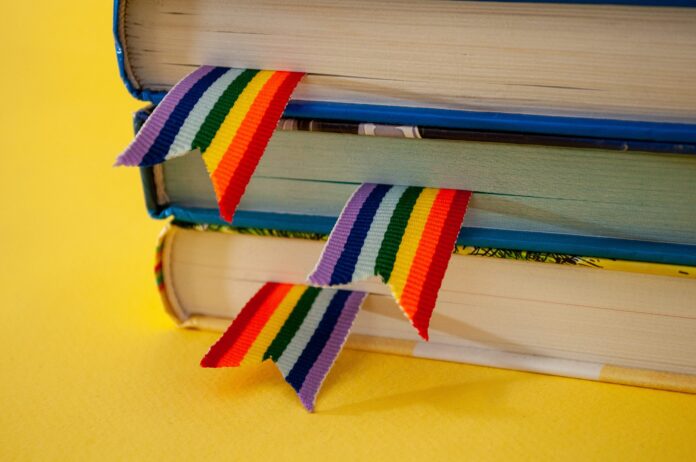Even as many of us are still enjoying summer, back-to-school time will soon be upon us—so here are some recent and relevant LGBTQ-inclusive picture books about schools, allyship and community.
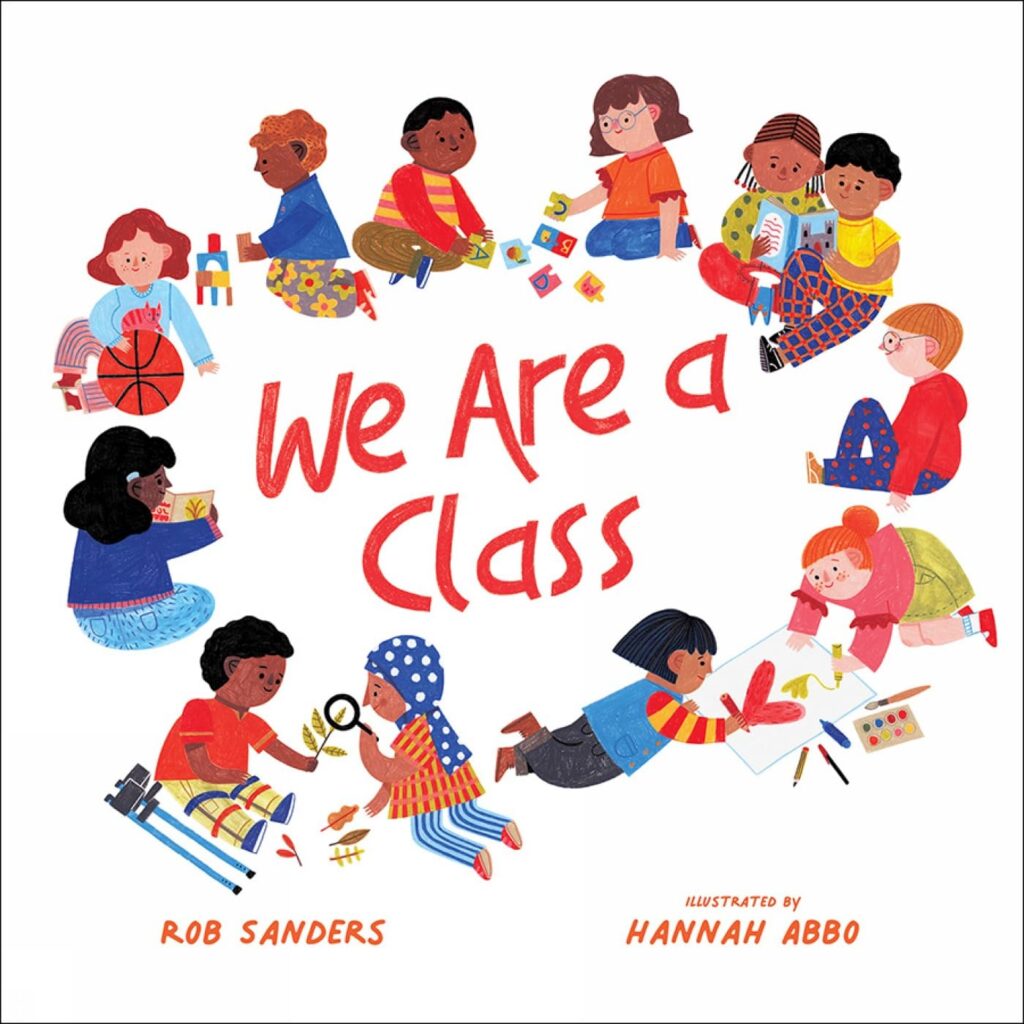
“We Are a Class,” by Rob Sanders, illustrated by Hannah Abbo (Beaming Books), explores the question of what it means to be part of a diverse and inclusive class, one of “Hes and shes/And theys and mes,” and teachers of all titles, including the nonbinary “Mx.”
With a deft use of alliteration and rhyme, the verses share the stories of the students: “We’re movers and shakers./Mammoth change makers./Friends. Learners./ Achievement earners.” We see that all are safe here in this space of sharing and openness, and sometimes the class even feels like family.
One page shows a teacher who reads as nonbinary, with a shave-sided haircut and rainbow pin, standing next to a student in overalls. A banner behind them reads “Welcome!” and the verse says, “There’s no need to fear./We’re glad you are here.” The sentiment can apply to anyone, but LGBTQ+ students should feel particularly acknowledged.
If every class took this book to heart, our schools—and our children—would be the better for it.
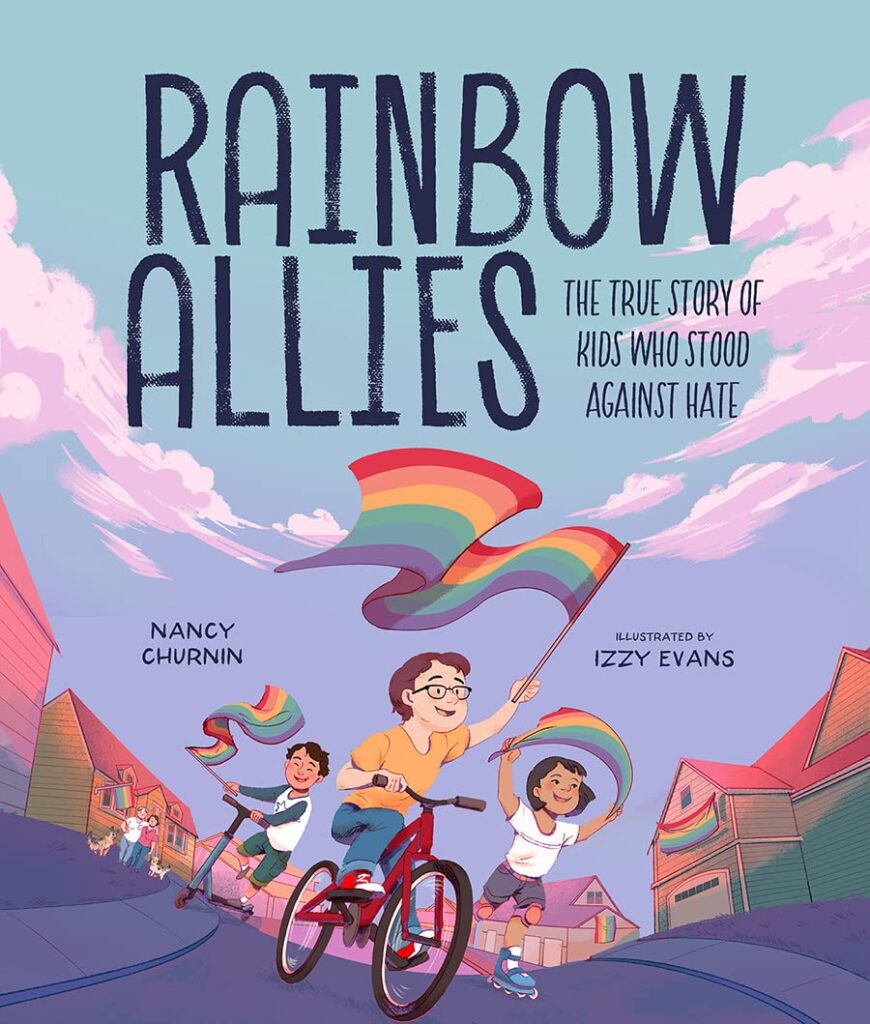
“Rainbow Allies: The True Story of Kids Who Stood against Hate,” by Nancy Churnin, illustrated by Izzy Evans (Beaming Books), is based on the true story of a lesbian couple in Natick, Massachusetts. It’s a town where “everyone is welcome”—until eggs are thrown onto the walls of their house and their Pride flag is stolen. Three neighborhood kids decide they have to do something. But what? Their solution is a lovely act of allyship and community.
Churnin knows how to pace a tale and balance description and dialog, while Evans’s illustrations are warm and evocative. The text never explains what the rainbow flag symbolizes, nor why someone might have taken it; we simply get the women’s musings that maybe someone doesn’t like the flag or them. A tale like this, however, may be a gentle way to open up conversations about anti-LGBTQ+ bias and why being an ally is important.
An Author’s Note explains more about the real incident behind the story, and about a community in Montana that responded similarly to an act of antisemitism. Additional back matter offers tips on being an LGBTQ+ ally. (One quibble: The use of “opposite-sex” in the back matter would have been better as “different-sex,” in order to acknowledge the spectrum of genders.) The publisher is also offering a free, downloadable Teacher’s Guide along with student printables on allyship, at beamingbooks.com.
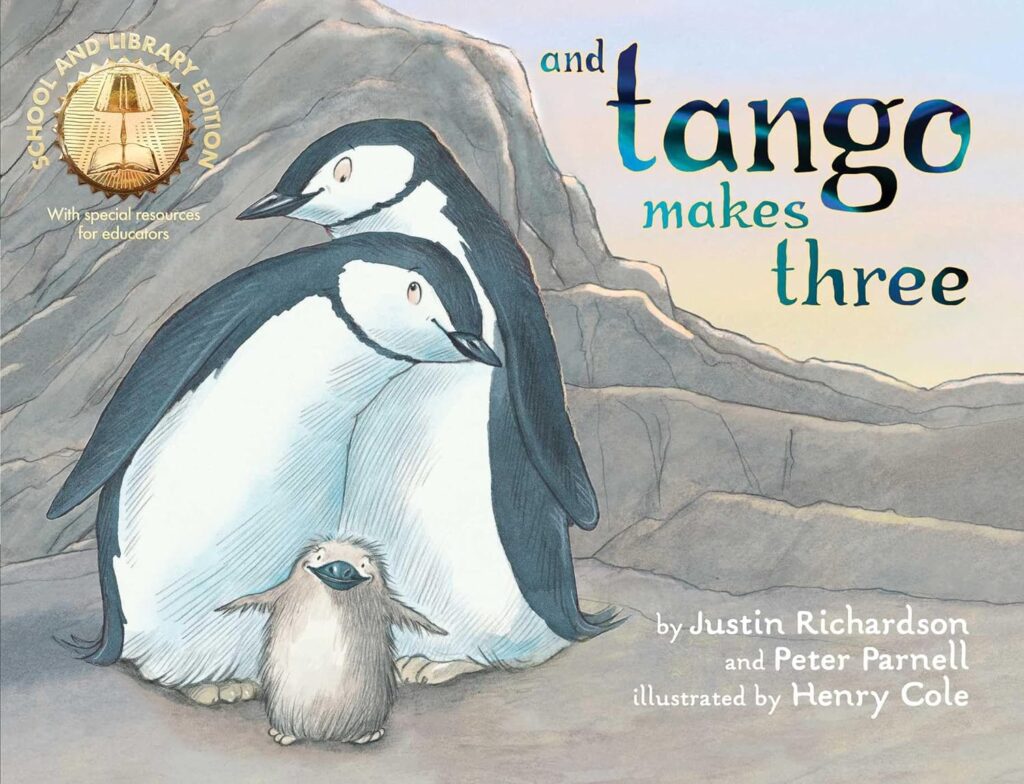
“And Tango Makes Three,” by Justin Richardson and Peter Parnell, illustrated by Henry Cole (Little Simon), is not a new book—but the now-classic 2005 tale of a male penguin couple who raise a chick is being reissued in a School and Library Edition with additional back matter and special resources for educators.
Tango’s story, based on a real-life penguin family, has been one of the most-challenged books in the country since shortly after it was published. (“Challenges” are requests for censorship, such as removing or restricting access to a book.)
The new edition therefore includes a new section on “Your Freedom to Read” and a list of resources for fighting book bans. Also new are an Authors’ Note on the importance of books and libraries, an afterword by science journalist Eliot Schrefer on the prevalence of same-sex pairs and parents throughout the natural world, and a Note for Educators about reading the book with children of diverse family types. Publisher Simon & Schuster will also offer a more extensive online Educators’ Guide at simonandschuster.net.
The charmingly told and illustrated tale remains a favorite for good reason. The new back matter should assist educators, parents and others in helping new generations connect with it as well.
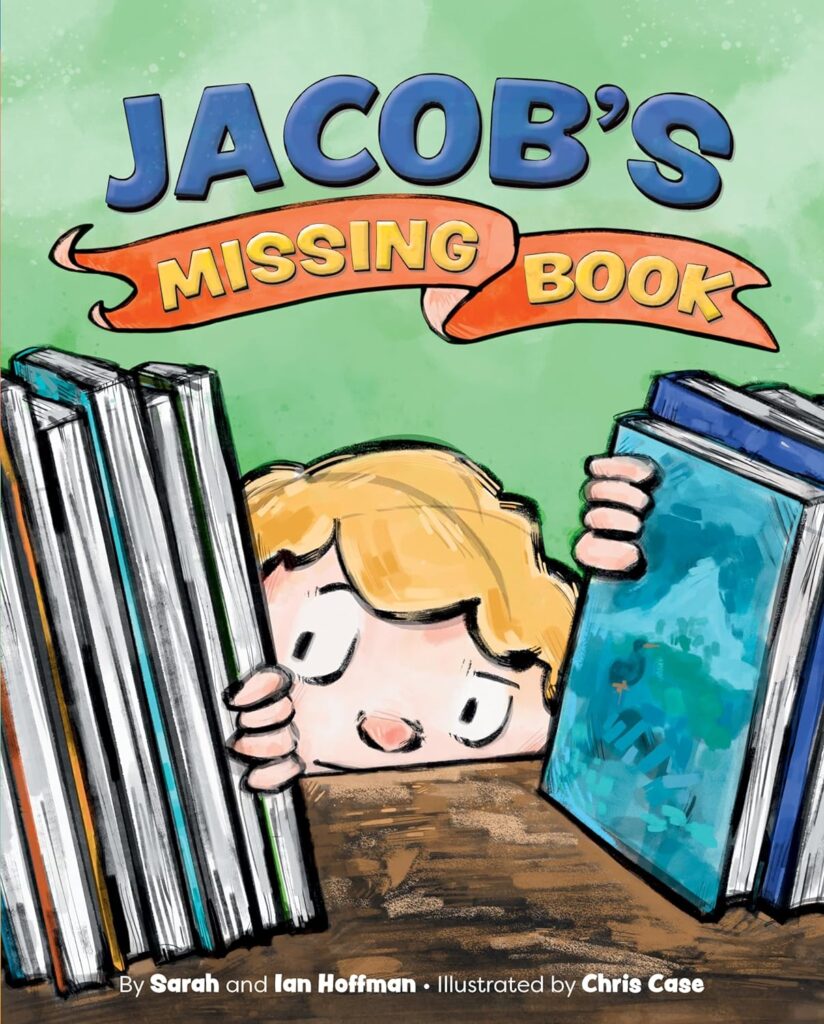
“Jacob’s Missing Book,” by Sarah and Ian Hoffman, illustrated by Chris Case (Magination Press), is the fourth in the series about the gender-creative Jacob and his friends; the first, “Jacob’s New Dress,” has been a frequent target of book bans. Now, Jacob is back in a timely story about book censorship, broaching the topic in a relatable, kid-friendly way with plenty of room for discussion.
When Jacob looks for “the penguin book” (an obvious reference to “And Tango Makes Three”), he discovers it’s missing from the school library. Then classmate Emily, who has two dads, wants to share it with another classmate so he can see a family like hers. The librarian explains, however, that it has been removed along with other books because “some people” are unhappy with them, and the school must figure things out. Jacob notes that his mom told him some people don’t like that the penguins are two dads. Emily wants to know what’s wrong with that, and the librarian assures her that nothing is.
Later, on the playground, Jacob and friends happily act out the story, pretending to care for their chicks. That night, Jacob asks his mother if the school can get the book back, and she tells him they can try.
There’s a lot to like here: the child’s-eye perspective on the impact of book bans; the gentle depiction of why representation is important; and the ending that doesn’t offer a saccharine resolution, but leaves room for hope. It’s a book that shouldn’t be necessary—but given the current climate, it should be a helpful conversation starter for children experiencing book bans and the grown-ups seeking to explain them.
